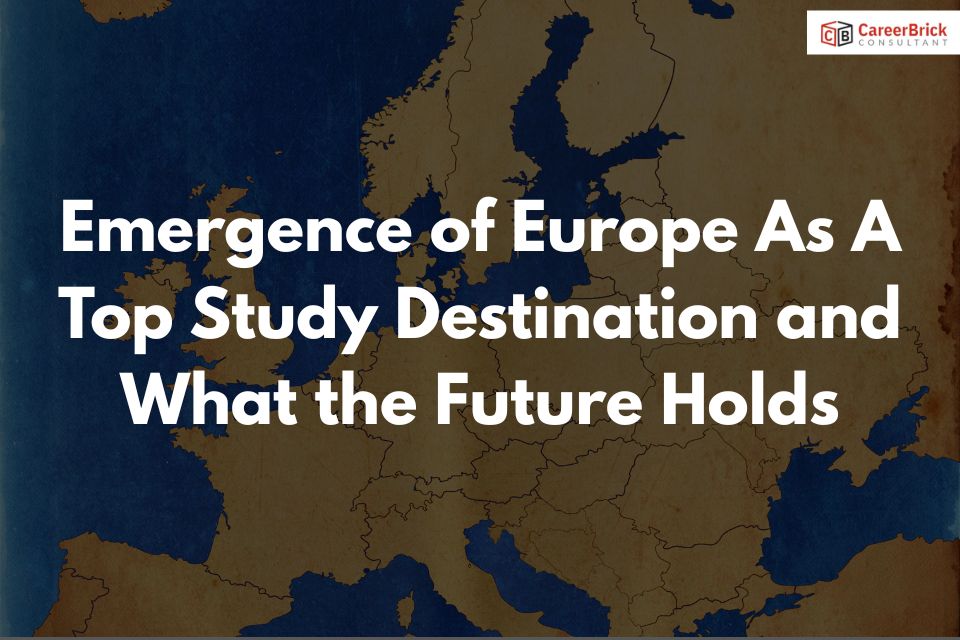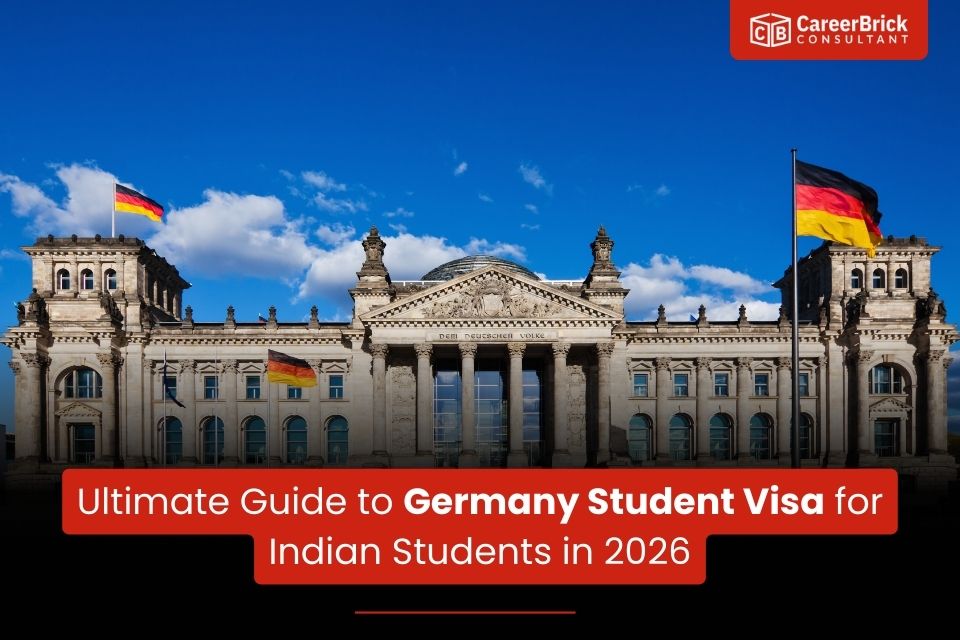At Career Brick Consultants, we’ve seen a remarkable transformation in the global education landscape — particularly the growing number of Indian students choosing Europe as their preferred study destination. Countries such as Ireland, Germany, France, Spain, Denmark, and Italy have witnessed a steady rise in student interest, marking a shift away from the traditional choices of the USA, Canada, Australia, and the UK.
For many years, students considered those four countries as the primary routes to quality education, career advancement, and potential settlement opportunities. Europe, though admired for its rich cultural heritage and academic excellence, often remained a secondary choice due to misconceptions around its job markets and immigration systems. However, that perception has evolved significantly in recent years.
The shift toward Europe signals a larger trend — one that is driven by affordability, global exposure, and evolving visa-friendly policies.
Changing Dynamics in Global Study Trends
The COVID-19 pandemic redefined the education landscape in unexpected ways. Despite international travel restrictions, the desire to study abroad never diminished. Millions of Indian students continued to pursue higher education overseas — but what changed was where they went.
Recent studies indicate a noticeable dip in the number of students applying for education loans for countries such as the USA and Australia. Many students are reconsidering their options due to rising tuition costs, strict immigration policies, and limited post-study work opportunities in those countries.
This shift doesn’t mean fewer students want to study abroad. On the contrary — it highlights that Indian students are diversifying their destinations, looking for high-quality education that offers value for money, employability, and global exposure.
Why Europe is Gaining Popularity Among Indian Students
From our experience at Career Brick Consultants, Europe’s rise as a top study destination stems from a combination of academic quality, affordability, and inclusivity. Many European universities now actively welcome international students and provide a supportive framework that extends far beyond academics.
1. Affordable Tuition and Living Costs
Compared to North America and Australia, the cost of studying in Europe is significantly lower. Public universities in countries such as Germany and France offer world-class education with minimal or no tuition fees, especially for STEM and business-related programs.
2. English-Taught Programs
While each European country has its native language, an increasing number of universities offer English-taught programs at both undergraduate and postgraduate levels. This makes Europe more accessible for Indian students who may initially be apprehensive about the language barrier.
3. Easier Visa and Application Processes
European countries are introducing simplified application and visa procedures to attract international students. Countries like Ireland and Germany have streamlined documentation requirements and faster approval timelines, making the entire process smoother and less stressful.
4. Flexible Work Opportunities
Students in most European countries are allowed to work part-time during their studies and full-time during vacations. This helps them gain valuable international experience while supporting their living expenses.
5. Multicultural Environment and Networking
Europe is a melting pot of cultures. Students not only gain a global education but also develop soft skills and cross-cultural communication abilities — essential in today’s global job market.
The Employment Landscape in Europe
While students used to prioritize destinations based on post-study work permits and permanent residency prospects, they are now realizing that career growth depends more on skill alignment than location.
Europe’s job market, particularly in technology, engineering, business, healthcare, and sustainability, continues to grow rapidly. Germany, for instance, is experiencing a high demand for engineers, data scientists, and IT specialists. Ireland remains a hub for global tech companies, while the Netherlands and Denmark are known for innovation and research-based industries.
However, students must approach this strategically. At Career Brick Consultants, we always advise candidates to choose programs that match their long-term career goals and align with skill shortages in the region.
A Word of Caution – Europe is Not “Easy Migration”
One of the most common misconceptions about studying in Europe is that it offers a direct path to permanent residency. While several European countries allow post-study work opportunities, migration policies are career- and merit-based, not automatic.
Students must select courses that are relevant to in-demand sectors and demonstrate their ability to integrate into the local workforce. It’s also crucial to understand that Europe values skill contribution — the focus is on building careers, not just obtaining visas.
Cultural Integration – The Key to Success
Europe’s diversity is one of its greatest strengths, but it also requires adaptability from students. Learning the local language and embracing the cultural nuances of the host country can make a significant difference when it comes to job hunting and social integration.
While many programs are taught in English, local companies often prefer candidates who can communicate in the native language. Being open to learning German, French, Spanish, or Dutch not only enhances employability but also enriches one’s overall study experience.
At Career Brick Consultants, we encourage students to view this as a long-term investment in personal and professional growth. Multilingualism is a global asset, and Europe offers the perfect platform to build it.
The Future of Studying in Europe
Europe’s commitment to international education is clear. Governments and universities across the continent are investing in research, innovation, and scholarships to attract bright minds from around the world.
In the next few years, we expect to see:
-
A rise in STEM and Business Management enrollments.
-
Expansion of English-taught postgraduate programs.
-
More emphasis on sustainability, green technology, and digital innovation.
-
Stronger university-industry partnerships offering internships and placements.
The demand for global talent in Europe will continue to rise, and Indian students — known for their technical skills, adaptability, and ambition — are perfectly positioned to benefit from it.
Conclusion
In summary, the shift toward Europe is not a temporary trend but a strategic evolution in global education preferences. Europe represents a balance between affordability, quality, and opportunity, offering Indian students a pathway to world-class education and international careers.
At Career Brick Consultants, we see this as a positive transformation. The goal isn’t just to study abroad — it’s to build a meaningful career and life that transcends borders. Europe, with its openness, innovation, and diversity, offers the perfect stage for that journey.







